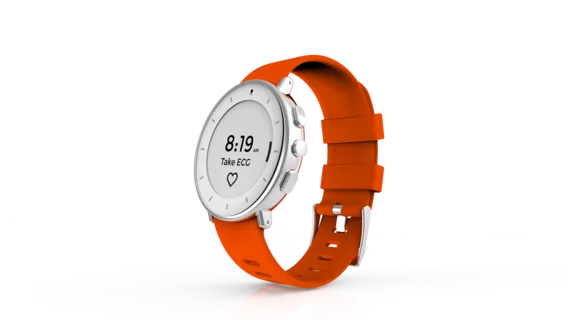Verily Study Watch earns FDA clearance for ECG feature
Verily, a subsidiary of Google parent company Alphabet, has received FDA clearance for the electrocardiogram (ECG) feature in its Study Watch, the company announced.
The Study Watch is an investigational device for capturing health information from clinical research participants launched by Verily in 2017.
The announcement comes several months after it was announced the new Apple Watch would feature an FDA-approved application that allows users to take their own ECG reading.
“Receiving this clearance showcases our commitment to the high standards of the FDA for safety and effectiveness and will help us advance the application of Study Watch in various disease areas and future indications,” Michael V. McConnell, MD, Verily’s head of cardiovascular health innovations and clinical professor of medicine at the Stanford University School of Medicine, wrote in the announcement.
The Study Watch leverages specialized sensors and a robust cloud infrastructure to collect and analyze various types of health information from biometric data, which is later uploaded and processed using algorithms and machine learning tools, according to the company’s website.
The Study Watch is currently being tested in several clinical and observational studies, featuring the cardiovascular health and the ECG capabilities. Through the ECG feature, the device records, stores, transfers and displays single-channel ECG rhythms. It is intended to be used by healthcare professionals, adult patients with known or suspected heart conditions and health conscious individuals.
“This work may ultimately give us insights into the utility of integrating mobile health data into the clinical care environment, and how these data can support the physician-patient relationship,” McConnell wrote. “Together, we are working towards a future where we can use devices, like the FDA-cleared Study Watch, to inform real-world, personalized care decisions and help us move to proactive healthcare.”

